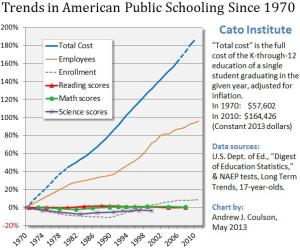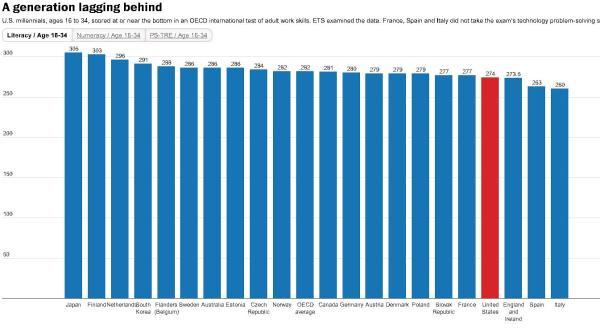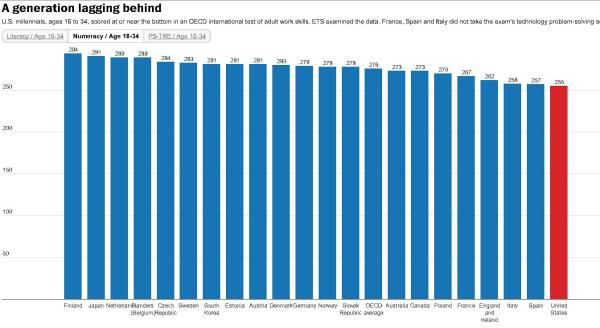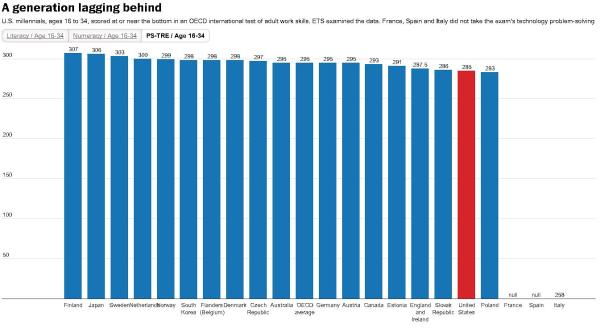No other nation in the world spends as much on education as the United States.
According to our leftist friends, who prefer to measure inputs rather than outputs, this is a cause for celebration. I guess it shows we have the best intentions. Or maybe we love our kids the most.
Or maybe we love our kids the most.
For those who prefer to focus on outputs, however, it’s very difficult to be happy about the results we’re getting compared to all the money that’s being spent. Heck, in some cases it’s almost as if we’re getting negative results when you compare inputs and outputs.
To paraphrase what Winston Churchill said about the Royal Air Force in World War II, never have so many paid so much to achieve so little.
Now we have more evidence that American taxpayers are paying a lot and getting a little (though I have to admit that non-teaching education bureaucrats have been big winners).
The Washington Post reports on some new research to see how America’s young adults rank compared to their peers in other nations.
The results aren’t encouraging.
This exam, given in 23 countries, assessed the thinking abilities and workplace skills of adults. It focused on literacy, math and technological problem-solving. The goal was to figure out how prepared people are to work in a complex, modern society. And U.S. millennials performed horribly. That might even be an understatement… No matter how you sliced the data – by class, by race, by education – young Americans were laggards compared to their international peers. In every subject, U.S. millennials ranked at the bottom or very close to it, according to a new study by testing company ETS.
There were three testing categories and Americans didn’t do well in any of them.
…in literacy, U.S. millennials scored higher than only three countries. In math, Americans ranked last. In technical problem-saving, they were second from the bottom. “Abysmal,” noted ETS researcher Madeline Goodman. “There was just no place where we performed well.”
Here’s the comparative data on literacy.

Here’s how Americans did on numeracy (which may explain why there’s considerable support for the minimum wage).

Last but not least, millennials didn’t exactly do well in problem solving, either (which may explain their bizarre answers to polling questions).

By the way, the researchers also sliced and diced the data to get apples-to-apples comparisons.
Yet even on this basis, there’s no good news for America.
U.S. millennials with master’s degrees and doctorates did better than their peers in only three countries, Ireland, Poland and Spain. …Top-scoring U.S. millennials – the 90th percentile on the PIAAC test – were at the bottom internationally, ranking higher only than their peers in Spain. …ETS researchers tried looking for signs of promise – especially in math skills, which they considered a good sign of labor market success. They singled out native-born Americans. Nope.
At some point, we need to realize that decades of additional spending and decades of further centralization have not worked.
Maybe, just maybe, it’s time to shut down the Department of Education on the federal level and to encourage school choice on the state and local level.
After all, we already have good evidence that decentralization and competitionproduces better test scores. There’s also strong evidence for school choice from nations such as Sweden, Chile, and the Netherlands.
